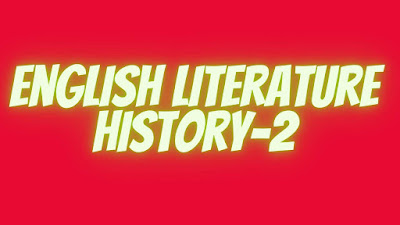The 2nd phase of this age is Jacobean Age. The age
is named after James I who reined England from 1603 to 1625. The word “Jacobean”
is derived from “Jacobus” the Latin Version of James. Some historians like to
call the last five years of this age a part of another age which they call The
Puritan Age (1620-1660). They call it so because between 1620 & 1660
Puritanism became the driving force in the life & literature of England.
The most major writers of this age are- Shakespeare, Ben Johnson, Francis
Bacon, John Webster, John Donne, George Herbert, the metaphysical poets who
started writing in this period. The 3rd part of this period is Caroline Age.
This age existed from1625 from to 1649. This Age is named after Charles 1 who
reigned over England from 1625 to 1649. “Caroline” Is derived from “Carolus”
the Latin version of Charles. This age is also a part of the Puritan Age. Donne
& Herbert continued to write their metaphysical poetry. Henry Vaughan &
Andrew Marvell also wrote metaphysical poetry. John Milton also started to
write in this period also. The last part of this period is the Commonwealth
period. This period, like the earlier two periods, belonged to the Puritan Age.
This is the period when there was no monarch in England.
After the death of Charles 1, Oliver Cromwell, the puritan leader, came to power. He died in 1658 when his son Richard Cromwell became the ruler of England. He ruled England till 1660. In this period Puritanism became gradually unpopular. The English people realized that monarchy was essential for them. John Milton who was still alive had not written anything important in this period. Thomas Hobbes a political philosopher, Jeremy Taylor, Vaughan & Marvell also continued in this period. Another pure part of English is “The Neoclassical Period”. This is called Neoclassical or Pseudo-Classical Age to mean the artificiality of the writers of this age. They imitated the ancient Greek & Roman literary tradition but lacked the originality of the writers of that period. This period is also divided into three parts generally. There are a) The Restoration Period, b) The Augustan Age, c) The Age of Sensibility.
Another golden age is the Romantic age. This age began in 1798 with the first edition of Wordsworth’s Lyrical ballads & ended with the first Reformation Act of 1832. This period is called “The Revival of Romanticism” because the romantic ideals of the Elizabethan period revived during these years. Lyrical Ballads brought a great change in Literature – both subject & style. Instead of aristocratic people & Pedantic style, common People & common language were preferred. It is also called the poetic age. The most major romantic poets of this period are – William Wordsworth, S.T. Coleridge, Lord Byron, P.B.Shelly, and John Keats. The Other important writers of this age are Jane Austen, Charles Lamb & William Hazlitt. The Victorian Age is another vital age in English literature. This age is named after Queen Victoria who reigned over England fron1837 to 1901. The twelve years, from 1848 to 1860, of this age is called the Age of the Pre-Raphaelites because the artists of that age followed the art forms used before the period of Raphael. The last few decades of this period are called the Age of Aestheticism & Decadence because there was a fall & decay of the Victorian spirit & standard in those years. In recreation against the Victorian moral lies in its beauty & formal perfection. The leading writers of this age are- Alfred Lord Tennyson, Robert Browning, Matthew Arnold, Charles Dickens, George Eliot, Thomas Hardy Charles Robert Darwin & Karl Marx.
The last ages of English literature are The Modern period & The Post Modern Period. The span from the death of Queen Victoria to the beginning of the Second World War (1939) is called the Modern period & from 1939 onward is called the postmodern period. The first decade of the modern period is called the Edwardian Period according to the reign of King Edward V11. The writers of this period were Hardy, Kipling, G.B.Show, and W.B. Yeats & Joseph Conrad. The years between 1910 to 1936 of this period is called The Georgian Period according to the reign of George V. Rupert Brooke, W.W.Gibson, Mansfield is among the best known Georgian poets.

